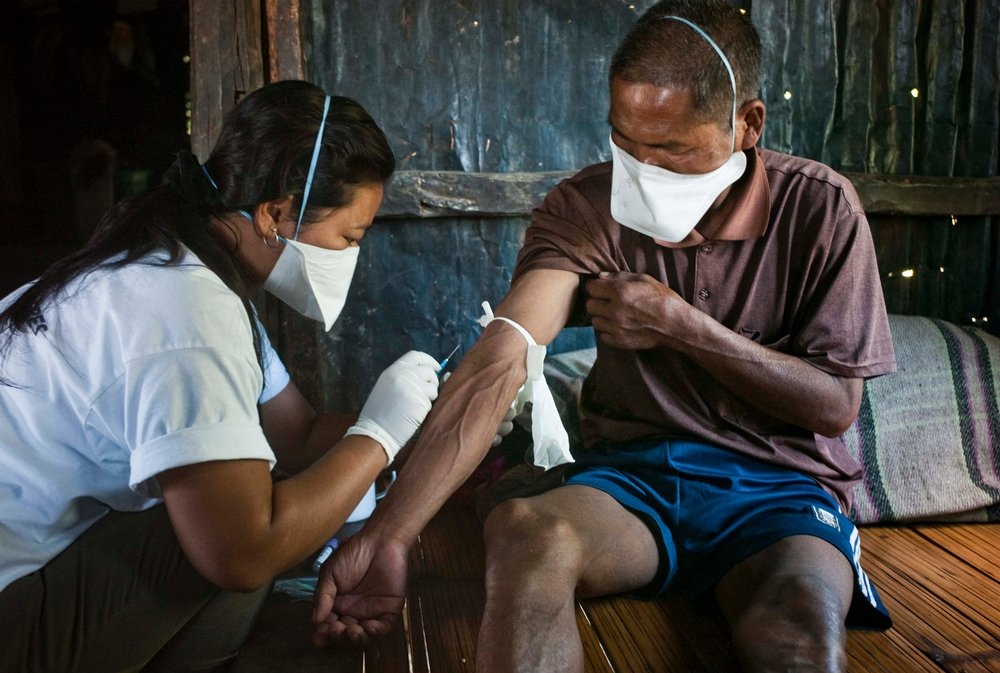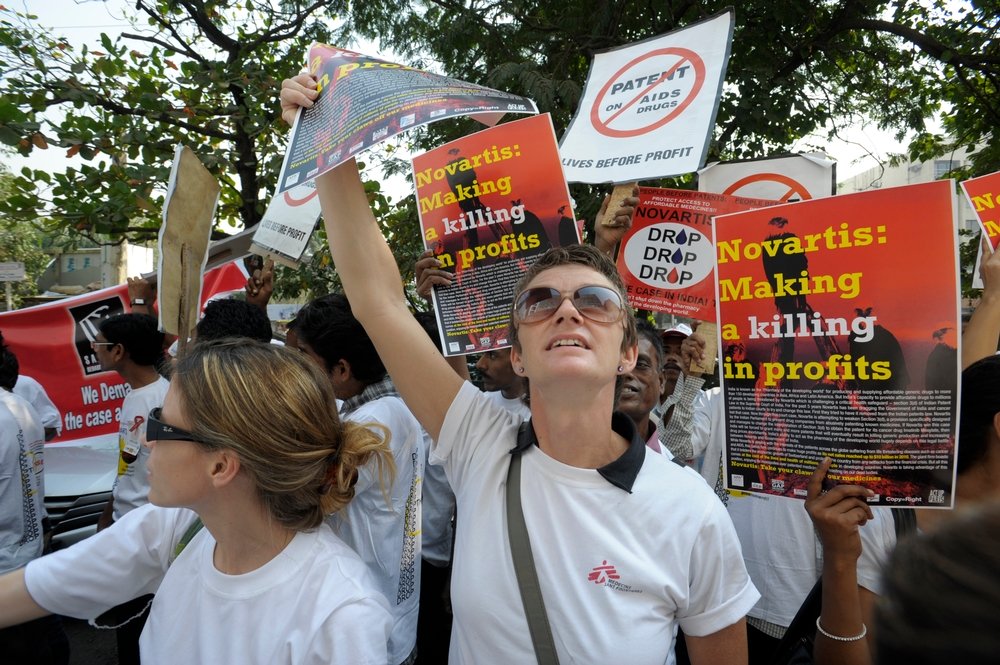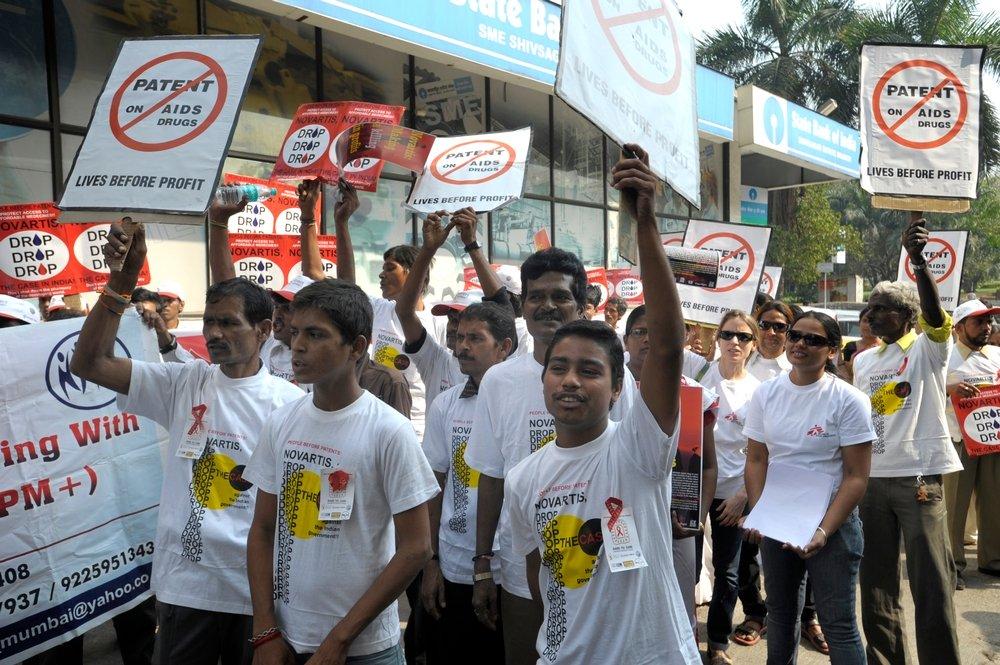
JOHANNESBURG – As India and the European Union prepare to meet at a New Delhi summit to finalize a Free Trade Agreement (FTA) under negotiation since 2007, Doctors Without Borders (MSF), the Treatment Action Campaign (TAC), SECTION27 and He-Tic held a picket to warn that harmful provisions in the agreement could have a severely negative impact on access to medicine for people in developing countries.
The picket, which took place in front of the Indian Consulate in Johannesburg, was part of a global week of action by civil society and health activists against harmful provisions in the proposed India-EU FTA. Actions are taking place across Europe, Africa, Asia, and Latin America. India has been called the ‘pharmacy of the developing world’ because it produces a large number of quality affordable generic medicines.
Thanks in large part to competition stemming from Indian generics, the price of first-line ARVs dropped from over R5,000 a month in the 1990s to less than R100 today. This significant price decrease has helped to facilitate the massive expansion of HIV treatment worldwide: more than 80% of the HIV medicines used to treat 6.6 million people in developing countries come from Indian producers, and 90% of pediatric HIV medicines are Indian-produced. MSF and other treatment providers also rely on Indian generic medicines to treat other diseases and conditions.

“The vast majority of the HIV drugs used in Southern Africa come from Indian producers or depend on India-made ingredients,” said Oliver Moldenhauer, advocacy coordinator for MSF in Swaziland. “Without these low-cost, quality generic medicines, far fewer people would have access to life-saving ARVs. Europe must not be allowed to use trade rules to shut down the pharmacy of the developing world.”
In trade talks setting the political framework this week in New Delhi the EU is pressuring India to agree to several measures in the FTA that will affect the production, registration and distribution of affordable generic medicines.
“It is a disgrace that the European Union is pressuring India to include provisions in the FTA which could restrict access to medicines and harm public health,” said Nokhwezi Hoboyi, district coordinator of TAC’s Ekhurhuleni branch. “India’s patent law falls in line with international trade rules, but now the EU is strong-arming India into accepting provisions that go beyond those rules at the expense of the health of millions around the globe. This is unacceptable and we are here today to say that our lives are not for sale and cannot be traded away.”
FOR MORE INFORMATION, OR TO ARRANGE INTERVIEWS, PLEASE CONTACT:
Kate Ribet, MSF SA Communications Officer |
E: kate.ribet@joburg.msf.org M: 079 872 2950
NOTES FOR EDITORS:
Harmful provisions in the EU-India FTA include:
- ‘Enforcement’ measures which could lead to generic medicines being prohibited from leaving India on their way to patients in other developing countries, on the mere allegation that a patent or trademark is being infringed. This could also embroil treatment providers into legal battles simply for having provided generic medicines to patients.
- The ‘investment’ part of the FTA, which would allow companies to sue the Indian government if, for example, an action by the government—such as overriding a patent to increase access to a drug, which is permissible under international law, or implementing price controls—is seen to negatively impact the company’s ‘investment’ in the country. Through this provision, the Indian government could be sued for large sums of money in secret dispute settlements outside of the national court system. Such measures have already been included in bilateral trade agreements between some European countries and India, posing a threat to generic production and medicine access.
- A further measure—so-called ‘data exclusivity’—could effectively block generic production even if a patent is not granted or has expired. While the EU has stated that they are no longer officially demanding data exclusivity, behind closed doors, the Union continues to pressure India to change its laws.The EU must keep to its commitment not to put this back on the table.
Find out more about MSF's work in India.
